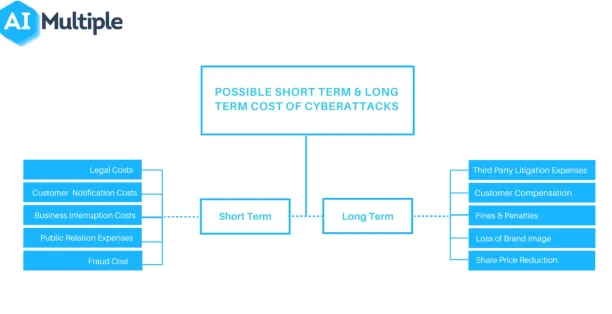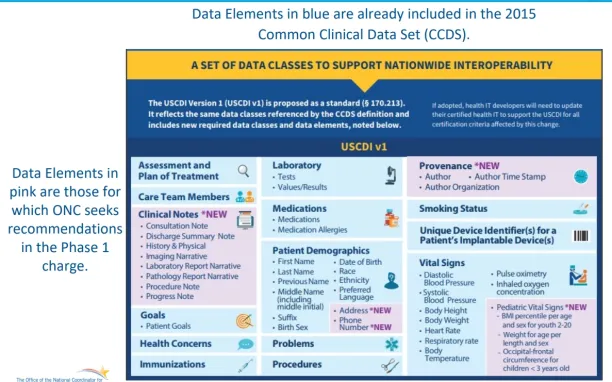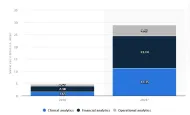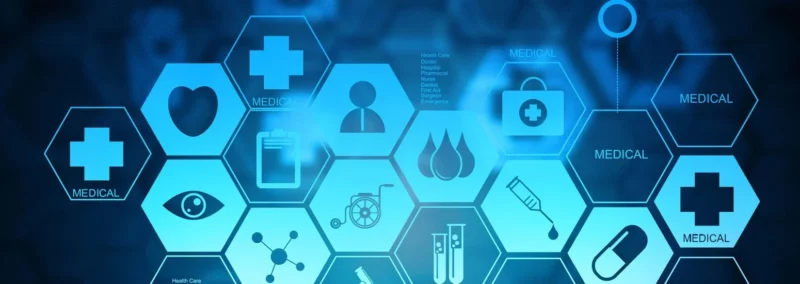Healthcare APIs in 2024: Top 7 Use Cases & Case Studies
Collecting and analyzing healthcare data is a complex task because
- Data is fragmented across different data silos, which makes having a complete picture difficult.
- Format inconsistency across parties makes analysis cumbersome. For example, Bloomberg Law claims that 70% of healthcare organizations in the US still use faxes.
APIs can facilitate the healthcare digital transformation and open new ways for using healthcare data, such as :
- Allowing users to share important medical data more easily,
- Enabling secure transmission of information across different systems and geographies,
- Increasing innovation as more products and tools can be created using healthcare APIs.
In this article, we will explore healthcare API use cases and the challenges they face in the healthcare industry, alongside our recommendations for overcoming them.
7 use cases & case studies of healthcare APIs
Healthcare companies can use or create customer-facing APIs to develop web and mobile applications to engage with customers. Additionally, Internal APIs can be developed to streamline and increase efficiency in healthcare companies’ internal operations and interactions with other partners.
1- Prescription fulfillment API
These APIs can be used for fulfilling and refilling prescriptions. For example, Walgreens pharmacy prescription API allows users of third-party applications to instantly buy prescription refills that were initially filled at one of the 8,200+ Walgreens pharmacies. Users can transfer non-Walgreens medications to their nearby Walgreens and get refills instantly. They can also receive notifications when their prescription order is available for pickup.
2- Diagnostic API
Diagnostic APIs can be used to provide possible diagnoses based on symptoms. You can watch the following video on Infermedica which provides a diagnostic API.
3- Healthcare data storage API
Patient data is important as the timely transmission of data can substantially affect the treatment of the patient. Additionally, patient data are highly sensitive so compliance with laws and regulations is important. For example, AdvancedMD Patient APIs give developers a means to safely access patient data and display it to the patient or a designated responsible party, like a parent or guardian.
4- Health tracking API
Health tracking APIs can be used for tracking user’s exercises, health information, and goal tracking. They can be integrated with wearable devices such as smartwatches. An example of a health-tracking API is my fitness pal. This RESTful API can track items such as exercises and exercise-related inputs.
5- Research API
Health care research API provides access to research information and databases on different fields such as :
- Protein sequencing
- Neuroscience
- Toxicology
For example, UniProt provides access to their protein sequencing data based using their API.
6- Health information API
These APIs provide access to general and specific health information on different topics, such as :
- Symptoms information
- Lifestyle tips
- Medicine information, such as side effects and how to take them
- Review of healthcare organizations
NHS provides many APIs that allow developers to get access to healthcare-related information. In addition to the topics mentioned above, they provide APIs related to :
- Pregnancy
- Mental health
7- Analytics API
APIs can be used for data collection and analysis. An example is Google cloud healthcare API. It enables standardized data interchange across Google cloud-based healthcare apps and solutions. Access to Google Cloud’s analytics and machine learning capabilities is made possible by the cloud healthcare API. Additionally, it offers a fully managed, scalable, and enterprise-grade development environment.
You can access our data drive list of Top 190 Healthcare APIs here.
3 Challenges of using healthcare APIs
1- Security
Health data is one of the most sensitive types of data because it contains personal information. Thus, it is crucial to have a secure API to avoid data leakages. In 2021, 64% of healthcare companies suffered ransomware attacks, representing a 94% increase over 2020. Security breaches can devastate organizations’ financial and reputation (see Figure 1).
Figure 1: Negative impact of data leakages.

Recommendation
Test your APIs regularly and rigorously. API Security tests can detect deficiencies and bugs at an early stage of development, prevent security incidents, and save costs.
Sponsored
Testifi’s PULSE is an AI-based API testing tool that can decrease the cost of testing by half. PULSE is automated, making it great for fast testing and an agile environment. Companies such as Amazon, BMW, and Vodafone use their services.
2- Compliance
Healthcare entities must comply with HIPAA rules in regard to health and medical information. Failure to do so can have severe effects, such as civil and criminal penalties. If an API comes in contact with any form of electronically protected health information (ePHI), it must comply with HIPAA rules. Some ePHIs are:
- Name,
- Birthday,
- Finger or voiceprints,
- Medical record,
- Health plan,
- IP address,
- Web URL.
Recommendation: Invest in compliance by creating checklists, regular audits, and hiring compliance specialists with HIPAA compliance expertise.
3- Interoperability
86% of non-federal hospitals use electronic health records (EHRs). EHR is a means of safely and conveniently maintaining a patient’s medical history online. The capacity to transfer medical records and other health-related data from one provider or system to another is interoperability. Interoperability is crucial in healthcare as it :
- Improves care coordination: Healthcare professionals will be able to utilize patients’ important data to provide a better level of care and treatment, as access to data can reduce the number of repeat tests and miscommunication.
- Higher performance: Organizations can analyze data trends, historical performance, and other factors to improve patient care and other areas thanks to interoperability.
- Better patient experience: Interoperability can reduce the number of bureaucratic works that patients and healthcare professionals face in the healthcare ecosystem.
However, interoperability is difficult to achieve as many different EHR providers use different programming languages and vocabularies. In 2021, the national coordinator’s office for health information technology reported that 73% of hospitals surveyed indicated that they had faced challenges in exchanging data from different vendor platforms.
APIs themselves do not solve the interoperability problem. However, regulations and standards have been developed to improve the interpretability of EHR and APIs. All key players in healthcare in the US have to adhere to :
- The 4th version of Fast Healthcare Interoperability Resources from HL7 International ( FHIR, pronounced like fire).
- US Core Data for Interoperability (USCDI).
FHIR
FHIR is a standard open-source framework that is developed to ease the challenge of data sharing and interoperability without harming information integrity. FHIR specifies exactly how data sharing must be done to ensure that all parties can understand one another. It uses RESTful APIs and allows sharing of documents in XML, JSON, or RDF format.
USDCI
The USCDI specifies which details must be disclosed in response to a patient’s request. This standard expands the common clinical data set (CCDS) data classes. (see Figure 2).
Figure 2: Common clinical data set

Source: The Office of the National Coordinator for Health Information Technology (ONC)
Recommendation: Cloud service providers that support the FHIR standard can be a cost-effective way to build an interoperable infrastructure on top of an existing system. Some of the cloud service providers that support FHIR are:
Further reading
If you are looking to use healthcare APIs, do not hesitate to contact us :

Cem has been the principal analyst at AIMultiple since 2017. AIMultiple informs hundreds of thousands of businesses (as per similarWeb) including 60% of Fortune 500 every month.
Cem's work has been cited by leading global publications including Business Insider, Forbes, Washington Post, global firms like Deloitte, HPE, NGOs like World Economic Forum and supranational organizations like European Commission. You can see more reputable companies and media that referenced AIMultiple.
Throughout his career, Cem served as a tech consultant, tech buyer and tech entrepreneur. He advised businesses on their enterprise software, automation, cloud, AI / ML and other technology related decisions at McKinsey & Company and Altman Solon for more than a decade. He also published a McKinsey report on digitalization.
He led technology strategy and procurement of a telco while reporting to the CEO. He has also led commercial growth of deep tech company Hypatos that reached a 7 digit annual recurring revenue and a 9 digit valuation from 0 within 2 years. Cem's work in Hypatos was covered by leading technology publications like TechCrunch and Business Insider.
Cem regularly speaks at international technology conferences. He graduated from Bogazici University as a computer engineer and holds an MBA from Columbia Business School.
To stay up-to-date on B2B tech & accelerate your enterprise:
Follow on

Comments
Your email address will not be published. All fields are required.